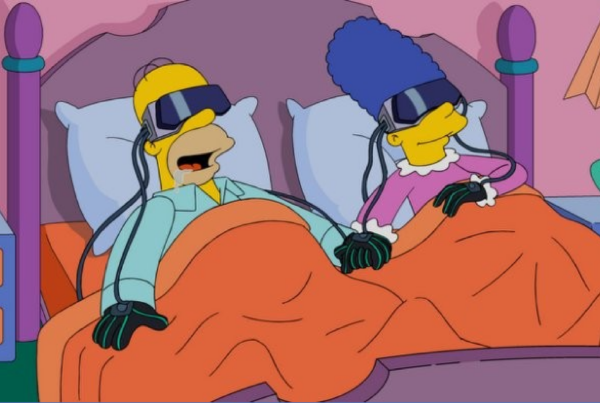
Philosophers as far back as Plato speculated that what we view as reality may not be all that real. With the introduction of computers, the idea that life is fake took on a new meaning. Popular culture has played with the idea with films and series like Black Mirror, Inception and the Matrix series. Is life a computer simulation?
Ancestor Simulators
Computers can process massive amounts of data and some of the most data-intensive tasks require simulations. Simulations consider various variables and use AI (artificial intelligence) to examine them and determine possible outcomes. The most popular form of simulation is a computer game. Examples include the game called Civilization. That’s how they operate now but with computers getting increasingly faster, the computers of the future will be a million times faster than they are today. Better computers mean better simulators – include those which simulate history. If computers get powerful enough, they would create history simulations so real that the self-aware beings within them would have no idea they were part of a program.
Think that’s too far out there? Harvard’s Odyssey supercomputer can simulate 14 billion years in only a few months.
If it’s possible, someone will do it
It might be possible to create a universe inside a computer, but is it moral? Humans are complex with emotions, it might be wrong to create a fake universe? Perhaps, but that wouldn’t really matter if it is indeed a simulation because to some people the idea is just too tempting. And even if simulators were made illegal, you wouldn’t really know now, would you? You just need one person to create one fake world.
Wouldn’t there be visible flaws?
If it’s advanced enough, people inside the simulation wouldn’t recognise the flaws at all. Maybe we do see the flaws in our life – think of déjà vu. Supernatural things such as ghosts and miracles could also be explained as flaws. The Internet offers plenty of anecdotal evidence of these glitches. Keep your mind and eyes open, and maybe you’ll see some for yourself.
Maths = Life
Every single thing in this universe is quantifiable in some way. All secrets in the Universe are solved using mathematical formulas. In fact, we explain the inexplainable better with numbers than we do with words. Scientists speculate that someone could have used binary code to simulate our worlds. Using maths, researchers are doing serious investigations into figuring out if our world is a simulation.
Humans Exist – and that’s amazing
For life to start on Earth we needed to be the perfect distance from the sun, the right atmosphere, powerful enough gravity. There might be other planets with similar conditions but none which have been proven to sustain life. The ultimate question of life is not the number 42 but rather why these conditions were set up so perfectly for us. One idea is that these conditions were set up in a lab perfectly for us to exist and it wouldn’t even need to be a human that did it.
Parallel Worlds
This theory is often played within Super Hero comics but is a legitimate theory that poses the idea that infinite realities exist. Think of Sandton City – it has multiple floors each with a common layout but different. This theory obviously comes with multiple implications – if there really are multiple universes, how did they come about? If we are in a simulation and there are parallel universes they would all be running at once. Each simulation has its own set of variables, and this isn’t random. The simulation’s creator plugged in different variables to test different scenarios and observe different outcomes.
Where is everybody?
Our sun is relatively young in comparison to other suns which means the possibility of other life is rather high. However, humans have traveled into space already. The life on these other planets should technically be more advanced and encountered us already (all based on the age of their sun). We’ve found no evidence of other intelligent life in the universe. If life should exist elsewhere but only exists on earth, that could be evidence that we are indeed a simulation.
Who’s doing it then?
What’s outside the universe? If it is a simulation, it might be another simulation of a simulation. Think of it as you playing a game of Sims and your Sims then started playing their own game of Sims. What is outside the creator’s “real” universe? It’s an idea so far removed from our lives that it could be impossible to speculate on it. But if simulation theory can at least explain our universe’s limited size and note what’s immediately outside it . . . well, that’s a good start in determining the nature of existence.
Fake people mean easy simulations
One might think that a world as diverse and complex as ours would be incredibly difficult to fake, even with super powerful computers. However, a convincing simulation would just need some detailed numbers and variables and then fake secondary players. If we compare it to games like Grand Theft Auto, we see that certain characters we can interact with whereas we can’t interact with the others at all. They contain hundreds of people, but you only interact with a few. Life could be very much like that—you have yourself, and you have your close family and friends, but everyone you pass on the street? They’re not real. They have few thoughts and no emotions. They’re little more than set dressing.
The scary thing is that we can’t prove or disprove that life is a computer simulation.



